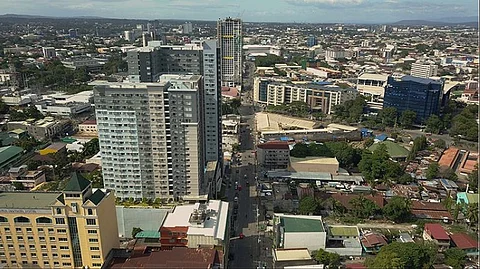

DAVAO City Third District Representative Isidro Ungab, author of the bill creating the Metropolitan Davao Development Authority (MDDA), is hopeful that the proposed measure will be signed into law before President Rodrigo Duterte ends his term in mid-2022.
"I hope this will be passed during the incumbency of President Duterte para masugdan dayon, mahabol unta sa (so we could start and be included in the) 2022 budget," Ungab said during the Davao City Chamber of Commerce and Industry Inc. (DCCCII) 5th General Membership Meeting virtual presser on Friday morning, May 28.
During the virtual presser, the House representative highlighted the recent passage of House Bill (HB) 8930 or an act creating the MDDA.
HB 8930 was approved on the third and final reading on March 25, 2021.
Ungab said a Senate bill was already filed by Senator Christopher "Bong" Go, and is currently pending for deliberation.
Considering the time constraints, with only months before Duterte ends his term, the representative said they are eyeing that the bill will be passed in order to be enacted as a law.
But if the bill will not pass, Ungab is hoping that the next administration will be supportive of the measure.
MDDA is a policy-making body tasked to coordinate and promote socio-economic growth and sustainable development of Metro Davao.
According to the bill, the MDDA shall have jurisdiction over the core local government units (LGUs), which includes the cities of Panabo, Tagum, and Island Garden City of Samal (Igacos) in Davao del Norte; Digos in Davao del Sur; and highly urbanized City of Davao; and the municipalities of Carmen in Davao del Norte, and Sta. Cruz in Davao del Sur.
The City of Mati in Davao Oriental and the municipalities of Maco in Davao de Oro, and Malita in Davao Occidental are its annex local government units.
Ungab said MDDA shall also perform planning, implementation, monitoring, and coordinative functions and exercise regulatory and supervisory authority over the delivery of area-wide services within Metropolitan Davao.
Other functions of the proposed metropolitan body include setting policies concerning traffic, waste management, and public safety and security for Metro Davao and coordinating, regulating, and enforcing the implementation of these programs and projects with concerned national governments.
Duterte-Carpio said during the forum that the MDDA bill will resolve current problems such as urban development if it becomes a law.
MDDCC committee under the RDC, of which the mayor is the chairperson, said the committee is working on the comprehensive sustainable urban development masterplan.
But Ungab clarified that the MDDA will not diminish the autonomy of the local government units (LGUs) concerning local matters, and the Regional Development Council (RDC)-Davao.
"The RDC will remain to be the highest planning and policy making body in the region. They are the counterpart of the Neda [National Economic and Development Authority] board, including the macro-economic aspect in the region," he said.
Ungab, meanwhile, said there will be no politics involved in the creation of the body, as it will only be "purely-coordinative."
He added several government agencies will also be included in the MDDA.
The bill is one of the initiatives of the Metropolitan Davao Development Coordinating Committee (MDDCC), a special committee under the RDC-Davao, under the leadership of Davao City Mayor Sara Duterte-Carpio.
In a press release, MDDCC recently approved the Terms of Reference for the formulation of a comprehensive and sustainable urban master plan for Metropolitan Davao during its first quarter meeting conducted on February 21, 2020 that was presided over by Duterte-Carpio.
The mayor said the urban master plan shall support the realization of the vision for Metropolitan Davao of becoming “a highly industrialized and globally competitive metropolis with highly-skilled and productive human resources, both men and women, and diverse but cohesive communities living in a safe, climate-resilient environment with modern and efficient infrastructure, sustained by governance that promotes equal opportunities for all.”
The Metropolitan Davao Sustainable Urban Master Plan will cover the following areas of cooperation identified by the Metropolitan Davao LGUs.
These include land use planning, agri-ecotourism promotion and management and urban greening; Davao Gulf coastal resource management; joint service delivery for urban facilities and services, including transport and traffic management, roads and other infrastructure development projects; joint service delivery for urban facilities and services -- housing; solid waste management; sewerage systems; disaster risk reduction; public safety; integrated flood control and climate-change proofing; digital connectivity; and water and energy.